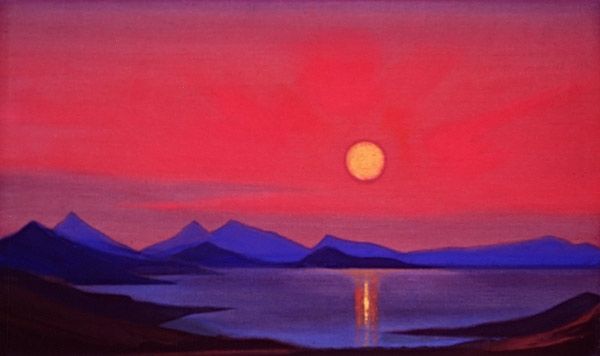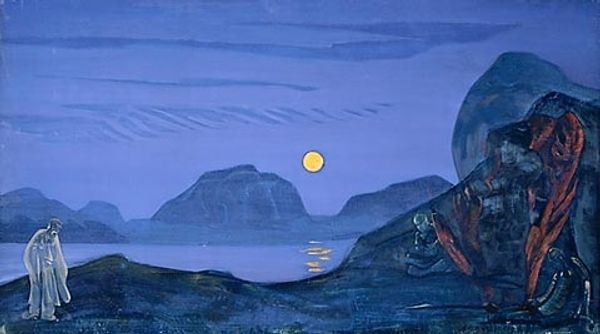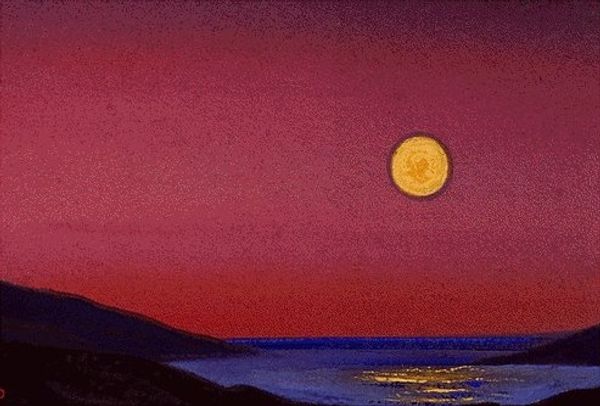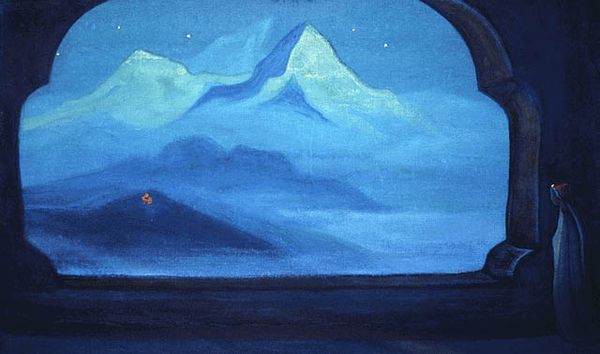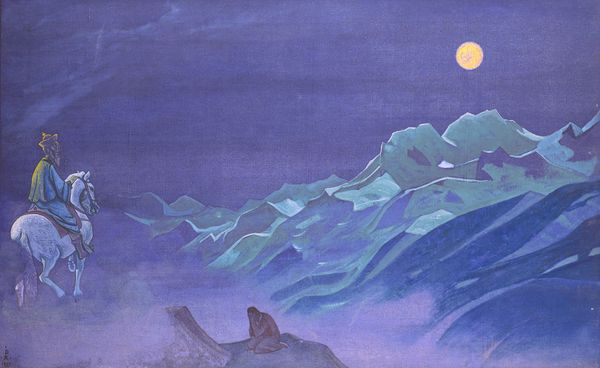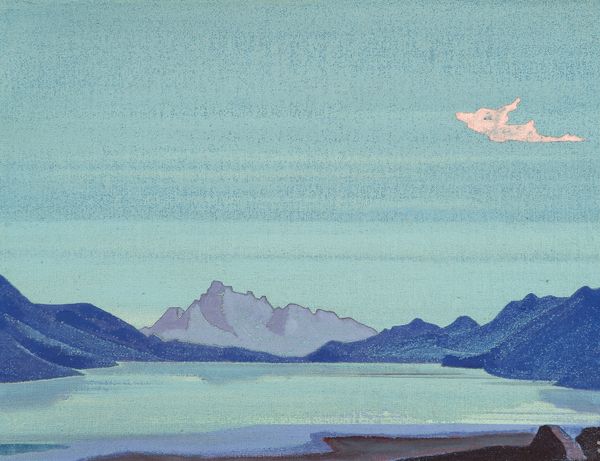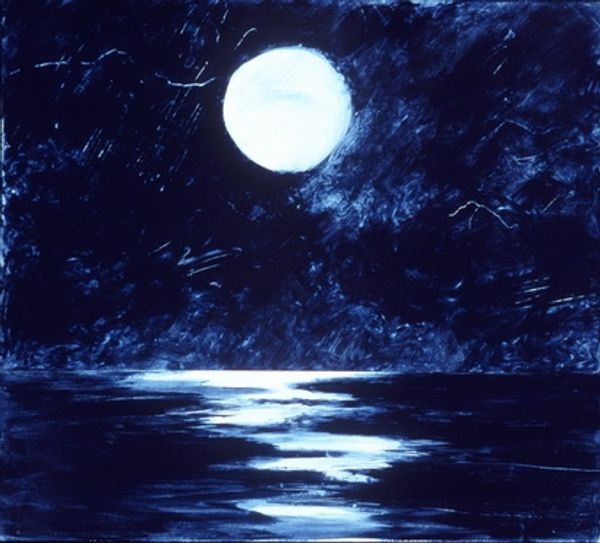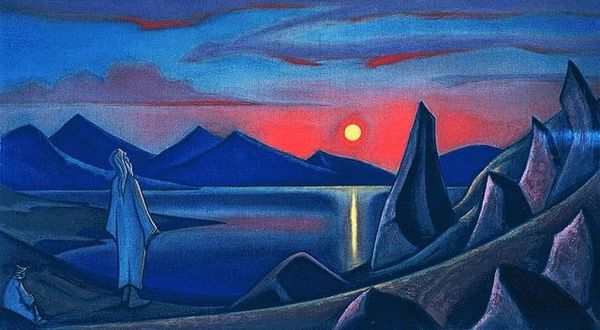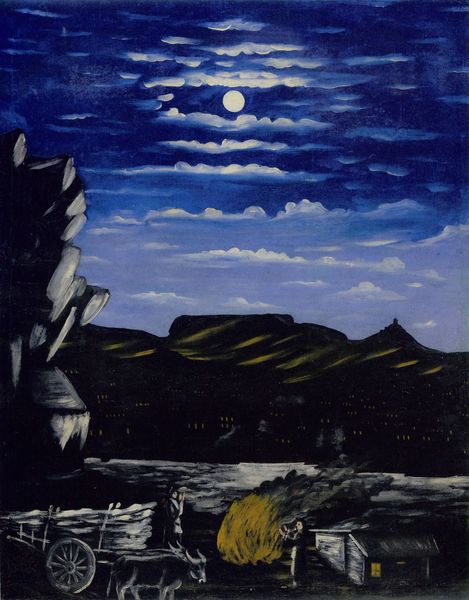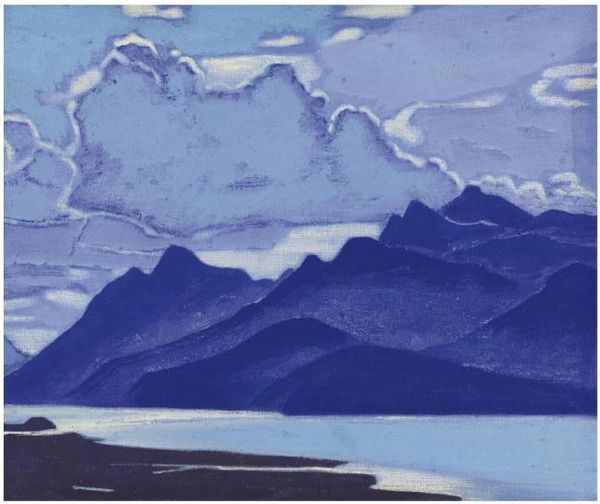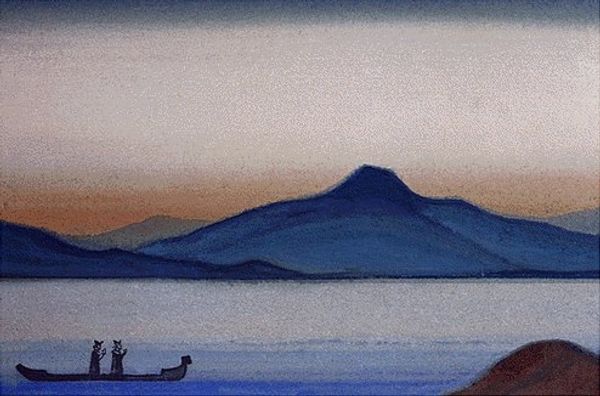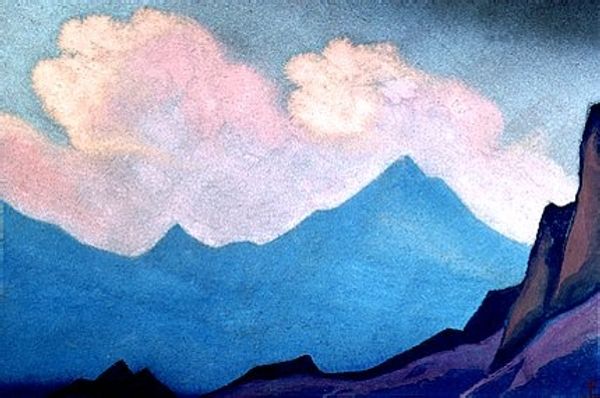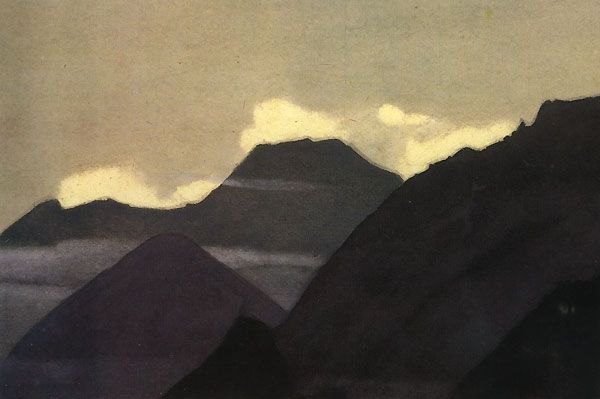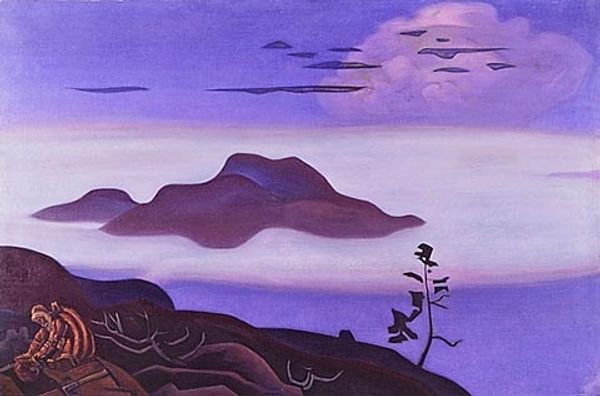
Copyright: Public domain
Editor: We're looking at "Eclipse," an oil painting from 1939 by Nicholas Roerich. It’s predominantly deep blues, showing mountains under a night sky dominated by a glowing moon. It has a very solemn and imposing feeling, doesn’t it? What social narratives or themes were relevant when this was painted? Curator: Indeed, it does. Looking at "Eclipse" through a historical lens, especially considering it was created in 1939, right before the start of World War II, one cannot ignore the impending sense of doom hanging over Europe. Roerich, a known mystic, often infused his landscapes with symbolism. The eclipse itself, a celestial event where light is blocked, could be interpreted as a metaphor for the encroaching darkness of war, a period where human rights were universally repressed, and marginalized groups were decimated. Editor: So, the darkness in the painting is both literal and a kind of foreshadowing? Curator: Precisely. The sublime, often associated with Romanticism and Expressionism, also plays a crucial role here. Roerich harnesses nature's grandeur—the imposing mountains, the dramatic sky—to evoke feelings of awe, but also fear and vulnerability, key emotional responses to sociopolitical chaos and a looming threat. Considering Roerich's theosophical beliefs, how do you think his work confronts systems of power? Editor: Maybe it's a way to show the smallness of humans and their conflicts against the vastness and indifference of nature, but also our relationship to these natural cycles, where oppression has its own orbit, rising and setting… Curator: An excellent observation. It pushes us to consider not only the environmental impact of conflicts but also how natural phenomena are consistently exploited to support or question existing political systems. Ultimately, this piece, like many of Roerich's works, invites us to question our place in the cosmos and the cyclical nature of history. Editor: I'll never see a landscape the same way again! Curator: And hopefully you’ll consider whose land the landscape depicts as well. There is always an implied, sometimes explicit, politics in art.
Comments
No comments
Be the first to comment and join the conversation on the ultimate creative platform.
